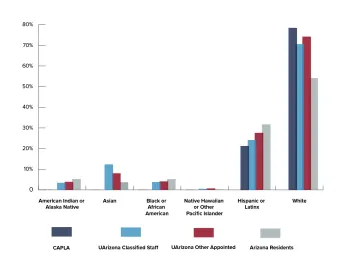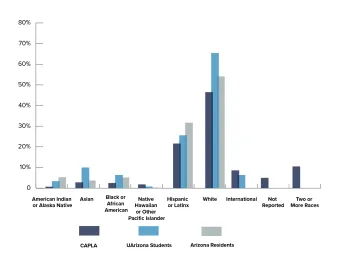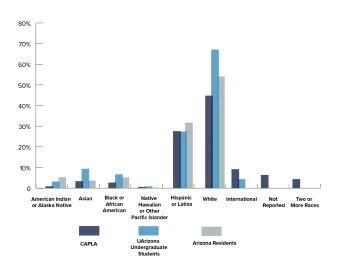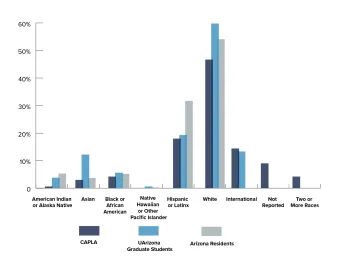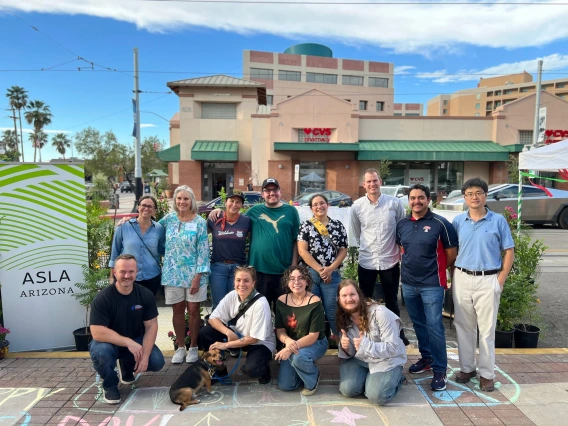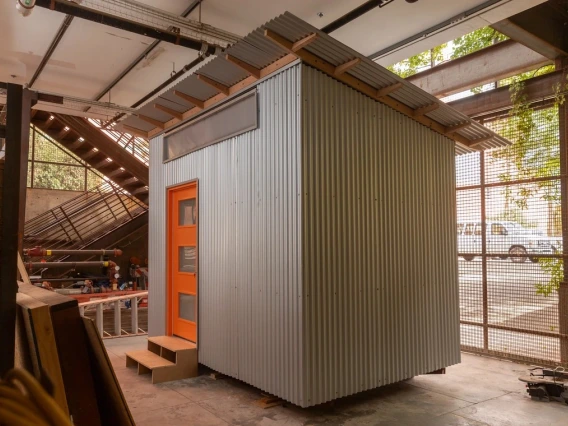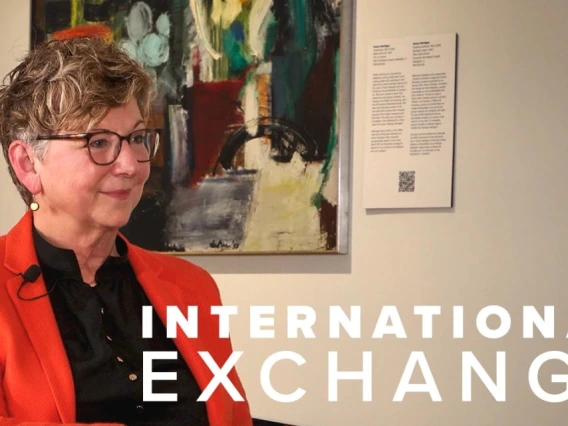CAPLA/College Community Council
Making CAPLA a leader in inclusive excellence.
The College of Architecture, Planning and Landscape Architecture is committed to a vibrant and inclusive community at all levels of the college.
We know there is still much work to do, but at CAPLA, we pledge real action.
In realization of the CAPLA Strategic Plan and in response to advocacy by students, alumni, faculty and staff, we commit to the measures addressed below to advance community initiatives and will be tracking our progress here. We welcome your feedback.
Vision and Tenets
Vision
In the teaching, research and service it provides, CAPLA is committed to fostering equitable opportunities to diverse peoples and to promoting inclusive participation. Through educational programs, research and creative practice, we seek to build capacity in future built environment professionals to promote an equitable quality of life and to contribute to a just society.
Tenets
- We expect the programs and initiatives of CAPLA to reflect the society that we serve.
- We advocate for non-discrimination and respect for the human and civil rights of all.
- We assert that social justice and equity are inextricably linked to environmental stewardship and sustainability.
- We acknowledge the pillars of equity, diversity and inclusion in all aspects of CAPLA endeavors including teaching and learning, research and outreach, mentorship and employment, as well as in our community and business transactions.
Following on the ad hoc Committee on Diversity and Inclusive Excellence that worked to help formulate the Strategic Plan aspiration above, CAPLA has elevated EDI matters to the level of a standing CAPLA committee. The CAPLA Equity, Diversity and Inclusion Committee, with diverse faculty, student and staff members, is a clearinghouse for questions, needs and ideas with respect to improving CAPLA practices and culture.
In order to set goals in a deliberate and meaningful way, goals for which we can be accountable, we had to first establish baselines of circumstances. To this end, we began and continue to gather demographic information about students, faculty and staff, including place of origin, race/ethnicity, gender and first-generation student status. This data is used to formulate recruitment, admissions, student support and faculty hiring plans each year.
Not all new CAPLA faculty or new CAPLA students (or even guests) know how a university and its units operate. That’s to be expected, but it is our obligation to inform, train and coach them about policies, procedures, best practices and—most important—our expectations for their conduct while they work or study here. Regular, mandatory harassment prevention and implicit bias trainings have been implemented for administrators, faculty and staff; bystander intervention training will be offered regularly to students. Guidelines for CAPLA guests have been drafted by the EDI Committee.
Even with training, conflicts sometimes occur. When they do, there should be clear guidelines for how to resolve them and evident points of contact with those administrators and staff who can help students and faculty. Conflict resolution guidelines have been drafted by the EDI Committee.
In a “loud” world, it is sometimes difficult to remain fully informed. However, the college takes seriously its opportunity to showcase the diversity of our students, faculty and staff and to highlight the variety of paths they have taken to CAPLA and that they take from CAPLA. Because there should be a plethora of paths to success, we want current and future students to find others like themselves in our mix—on our website, in our communications and in our classes. The effort to tell the stories of our community and our place in Arizona, the U.S. and the world is meant to build connections that enhance a sense of belonging and help mentor students and faculty to do productive work.
CAPLA/College Community Council Initiatives: An Overview
Accomplishments
Since 2020, CAPLA has completed the following community initiatives:
- Drafted a CAPLA vision and CAPLA/College Community Council Committee mission.
- Gathered and made available demographic data for all programs and cohorts—in order to benchmark and set goals for recruitment and retention of diverse students, faculty, staff and administrators.
- Joined the National Organization of Minority Architects and created a CAPLA-wide NOMAS student chapter.
- Conducted mandatory implicit bias training for all faculty and staff and supervisory harassment prevention training for administrators.
- Created a new CAPLA community web section and dashboard including featured EDI narratives, a list of initiatives and indication of their implementation status, presentation of demographics, description of EDI committee membership, a list of associated student organizations and other resources.
- Developed an antiracism bibliography, making it and the listed texts available to the CAPLA community and using them to inform discussions to create a shared understanding of racism and other kinds of discrimination.
- Drafted guidelines for CAPLA guests and visitors in order to inform them about our culture and our expectations for professional and equitable interaction with members of the CAPLA community.
- Drafted a conflict resolution primer for students.
Continuing Progress
In 2022 and 2023, we have made progress on the following community initiatives, which are still underway:
- Prioritizing diversity and inclusion in all job searches.
- Requiring training for all newly hired and ongoing faculty and staff supervisors in order to prevent harassment and discrimination, including micro-aggressions.
- Scheduling occasional faculty and staff trainings to address topics such as conflict resolution strategies, threat identification, and student mental health conditions that may impact different sub-populations of the CAPLA community differently.
- Providing occasional bystander intervention training for student ambassadors, student building monitors and leaders of student organizations.
- Setting student recruitment goals for local, state and regional recruitment of specific underrepresented populations in high schools and community colleges.
- Launching a First Generation Student Alliance.
- Providing faculty and peer mentoring to students at difficult transition points in our curricula.
- Creating and maintaining a roster of students who are eligible for need-based graduate funding packages.
- Fundraising at different scales and in different ways—in order to help meet tuition, fee, technology and/or material costs for students in need.
- Creating regular forums for students, faculty, staff, administrators and alumni to discuss EDI issues in a safe space.
- Evaluating our curricula and pedagogies for identifying and showcasing community models in CAPLA programs and elsewhere.
- Working through the Drachman Institute to engage with diverse and underserved local communities.
- Developing website profiles, other coverage and opportunities to celebrate diverse contributions that showcase the diverse members of the CAPLA community.
In 2024-2025, we will consider how best to regularize the composition and meeting schedule of the CAPLA/College Community Council Committee as part of a larger committee reorganization for effective shared governance and advocacy. Our aim is to make equity, diversity, and inclusion a part of all we do at CAPLA.
All CAPLA/College Community Council Initiatives
Tracking CAPLA's community Initiatives within the Framework of the CAPLA Strategic Plan
The CAPLA Strategic Plan has five values, including Make CAPLA a Leader in Inclusive Excellence. This value's objectives are:
- Recruit, support and retain successful students who reflect the future of Arizona and the communities we serve.
- Reinforce an inclusive and respectful environment where all faculty, administrators, staff, students and outside partners contribute to CAPLA’s success.
- Prioritize wellbeing, equity and diversity as a central tenet of CAPLA culture in all our activities.
Click an objective below for a comprehensive table of goals, means, time frame, responsibility and status for each initiative within the objective:
Objective 1: Recruit, support and retain successful students who reflect the future of Arizona and will be active contributors during school.
| Goal (In order to...) | Means (We plan to...) | Time frame | Responsibility | STatus | |
|---|---|---|---|---|---|
| 1.1. Focus on under-served Arizona populations. | |||||
| Benchmark and set goals for recruitment and retention of diverse students, faculty, staff and administrators. | Gather and make available demographics data for all programs and cohorts. | Fall 2020 and annually thereafter | Associate Dean for Academic Affairs |
COMPLETE |
|
| 1.2. Embrace Hispanic-Serving Institution status. | |||||
| Benchmark and set goals for recruitment and retention of diverse students, faculty, staff and administrators. | Gather and make available demographics data for all programs and cohorts. | Fall 2020 and annually thereafter | Associate Dean for Academic Affairs |
COMPLETE |
|
| Further diversify the student body. | Set recruitment goals for local, state and regional recruitment of specific underrepresented populations in high schools and community colleges. | Fall 2020 and annually thereafter | Advising, Recruitment Team |
ONGOING |
|
| 1.3. Optimize graduate funding packages in order to be competitive. | |||||
| Identify student need. | Poll students about need; create and maintain a roster of students who have identified themselves as having need. | Fall 2020 and ongoing | FRAME Squad*, Advising Team |
ONGOING |
|
| Meet tuition, fee, technology and/or material costs for needy students. | Fundraise at different scales and in different ways. | Fall 2020 and ongoing | Dean, Director of Development, Director of Alumni Relations, School Directors |
ONGOING |
|
| Support minority students. | Join National Organization of Minority Architects and create student chapter. | Fall 2020 | School of Architecture Director |
COMPLETE |
|
| Publicize the variety of careers possible with CAPLA degrees. | Provide exposure to the work of varied alumni and regular summaries of trends among graduates from our disciplines nationwide | Fall 2021 and ongoing | Advancement Team |
ONGOING |
|
| 1.4. Provide GTA/GRA orientation, training and exit surveys. | |||||
| Prevent implicit bias in working relationships with students and colleagues. | Provide mandatory implicit bias training for faculty and staff. | Fall 2020 and annually thereafter | Dean, Associate Dean for Academic Affairs |
ONGOING |
|
| 1.5. Support students from first contact to launch. | |||||
| Provide mentorship to diverse students. | Inform faculty about how to serve as informal mentors. | Fall 2021 and ongoing | Associate Dean for Academic Affairs |
ONGOING |
|
| Encourage peer mentoring among students. | Identify and train CAPLA Student Ambassadors, members of student organizations and other student volunteers to identify peers in distress or need and support them proactively. | Fall 2021 and ongoing | FRAME Squad* |
ONGOING |
|
| Mentor students on self-representation and networking skills. | Engage alumni in a mentor network and develop programming in which they explain how they have succeeded | Fall 2021 and ongoing | Director of Alumni Relations |
ONGOING |
|
| Provide students with an easy means of reporting problems or concerns. | Adopt or develop a student app. | Fall 2021 | Director of Marketing and Communications |
IN PROGRESS |
|
* FRAME Squad includes advisors, recruiters, academic affairs, development, alumni, marketing and communications and school representatives.
Objective 2: Reinforce an inclusive and respectful environment where all contribute to CAPLA success.
| Goal (In order to:) | Means (We plan to:) | Time Frame | Responsibility | Status | |
|---|---|---|---|---|---|
| 2.1. Provide cultural competency training for faculty and staff. | |||||
| Mentor faculty with respect to policies and best practices for EDI. | Require new faculty to participate in a one-semester CAPLA Teaching Academy and encourage ongoing participation by continuing faculty. | Spring 2021 and annually thereafter | Associate Dean of Academic Affairs |
ONGOING |
|
| Prevent harassment and discrimination, including micro-aggressions. | Require EDI training for all newly hired and ongoing faculty and staff supervisors. | Fall 2020 for new hires and existing supervisors; every two years thereafter | Dean |
ONGOING |
|
| Inform CAPLA guests and visitors about our culture and our expectations. | Draft Guest and Visitor guidelines. | Fall 2021 and reviewed annually thereafter | Associate Dean of Academic | COMPLETE | |
| 2.2. Recruit diverse faculty. | |||||
| Diversify faculty. | Create faculty hiring plans. | Spring and Fall 2021 | Dean, Associate Dean for Academic Affairs, Associate Dean for Research, Directors, Faculty |
ONGOING |
|
| 2.3. Provide new student, faculty and staff orientations to CAPLA culture. | |||||
| Inform students about conflict resolution processes. | Draft a Conflict Resolution primer. | Fall 2020 and reviewed annually thereafter | Associate Dean of Academic Affairs |
IN PROGRESS |
|
| Prevent student-on-student harassment. | Develop student bias training to be embedded in a required course in each degree program. | Spring 2022 | Associate Dean of Academic Affairs, Faculty |
2023-2024 |
|
| Train students to intervene in student conflicts. | Provide bystander Intervention training for Student Ambassadors and leaders of student organizations. | Spring 2021 and annually each fall thereafter | FRAME Squad* |
ONGOING |
|
| 2.4. Acknowledge the history of diverse groups and their contributions to CAPLA's disciplines. | |||||
| Include coverage of diverse contributions to and systemic racism and other discrimination in the built environment, its professions and our academic disciplines. | Review CAPLA courses and degree programs for EDI coverage and increase if missing or minimal. | Spring 2021 and reviewed every third year thereafter | Associate Dean of Academic Affairs, Directors, Staff |
ONGOING |
|
| Create a shared understanding of racism and other kinds of discrimination. | Develop an antiracism bibliography, make it and the listed texts available to the CAPLA community and use shared readings to inform discussions. | Fall 2020 and reviewed annually thereafter | Associate Dean of Academic Affairs, EDI Committee |
COMPLETE |
|
| Diversify course content. | Provide pointers for development of EDI content in CAPLA courses and degree programs. | Summer 2021 | Associate Dean of Academic Affairs, Faculty |
IN PROGRESS |
|
* FRAME Squad includes advisors, recruiters, academic affairs, development, alumni, marketing and communications and school representatives.
Objective 3: Prioritize wellbeing, equity and diversity as a central tenet of CAPLA culture.
| Goal (In order to:) | Means (We plan to:) | Time Frame | Responsibility | Status | |
|---|---|---|---|---|---|
| 3.1. Benchmark with peer institutions, seeking opportunities to improve practices and cultures. | |||||
| Discuss EDI issues. | Create regular fora for students, faculty, staff, administrators and alumni. | Fall 2020 and ongoing | Dean, Associate Dean of Academic Affairs |
ONGOING |
|
| Draft a CAPLA EDI vision. | Define "equity, diversity and inclusion" for CAPLA. | Fall 2020 - 2021 | EDI Committee |
COMPLETE |
|
| Engage with diverse and underserved local communities. | Work through the Drachman Institute to build community relationships. | Fall 2020 and ongoing | Associate Dean for Research |
ONGOING |
|
| 3.2. Create inclusive marketing and promotional materials. | |||||
| Showcase the diverse members of the CAPLA community. | Develop website profiles, other coverage and opportunities to celebrate diverse contributions. | Fall 2020 and ongoing | Director of Marketing and Communications |
ONGOING |
|
| 3.3. Create diversity and inclusion assessment. | |||||
| See 1.1 and 1.2 above. |
IN PROGRESS |
||||
Resources on community inclusion & the Built Environment
A bibliographical guide courtesy of University Libraries that includes an introduction plus publication resources in the following sections: Societal Systems and Structures of (In)Equity, Teaching/Education, Architecture and Cities.
Profiles of CAPLA's Diverse Community
While statistical information is useful for seeing the whole of our community in the abstract, we recognize that each member is an individual with their own story. Here are the stories of a few of our students, faculty and alumni:
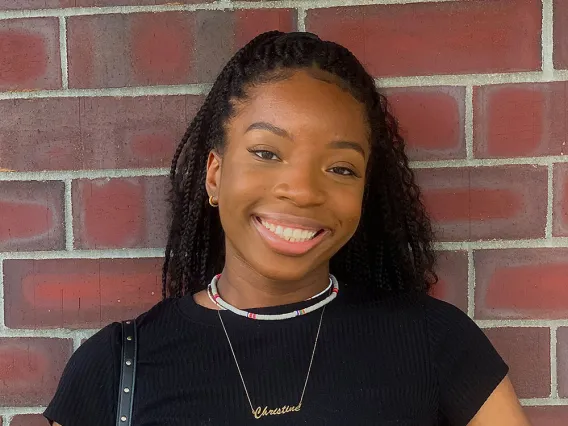
Student Profile
Christine Ufondu '25 B.Arch
Christine Ufondu, who is also pursuing in a Minor in Real Estate Development, was born in Houston, Texas, but mostly grew up in Rivers State, Nigeria. Though she chose to come to CAPLA site unseen, it was the right decision: she loves the community of faculty, students and immersive design.
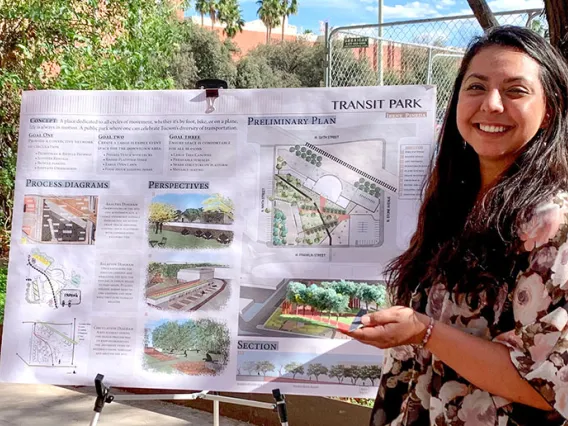
Student Profile
Irene Pineda '22 MLA
Irene Pineda is from La Puente, California, located 20 miles east of downtown Los Angeles. She earned her BA in Communicative Disorders from San Francisco State University and served as a public school teacher before falling in love with the Sonoran Desert and joining the MLA program.
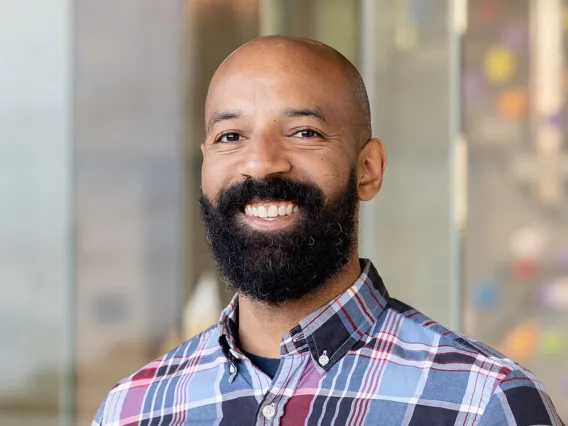
Faculty Profile
Kenneth J. Kokroko, Assistant Professor of Landscape Architecture
Kenneth J. Kokroko, a CAPLA Master of Landscape Architecture alumnus, recognizes the importance of a positive, collaborative and interactive studio culture for developing designers and landscape architects who can work together and think critically to address social and environmental challenges.
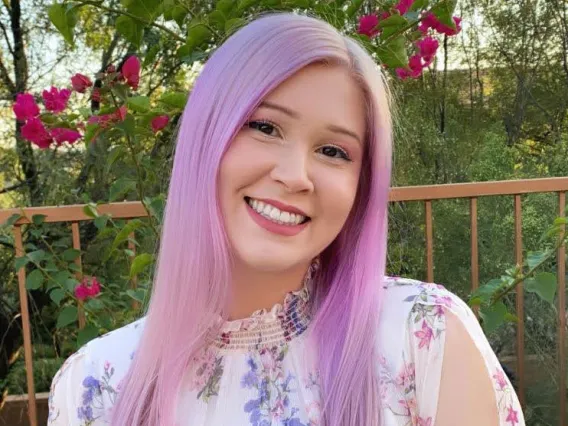
Student Profile
Julia Smith '26 B.Arch
Julia Smith isn’t your typical design student, and for Puente—the Hispanic student organization of CAPLA that she recently led—that’s a good thing. Though Smith is a Bachelor of Architecture student, she’s six years older than most of her classmates. She’s also married to a member of the U.S. military.
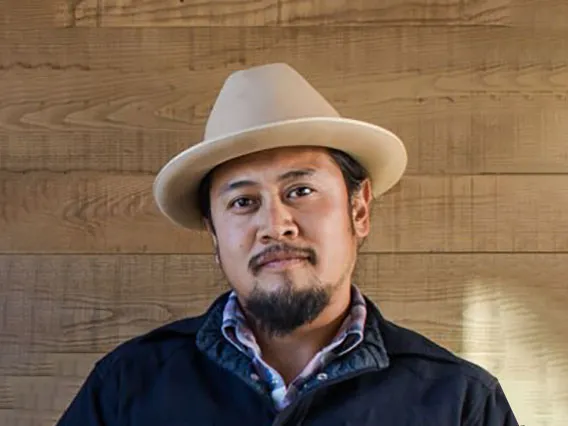
Faculty Profile
Jesús Robles, Assistant Professor of Practice in Architecture
Assistant Professor of Practice in Architecture Jesús Robles, who teaches Techne 2 and second-year studios and is a principal at DUST Architects, has a focus that "oscillates between sustainable material development and poetics of space."
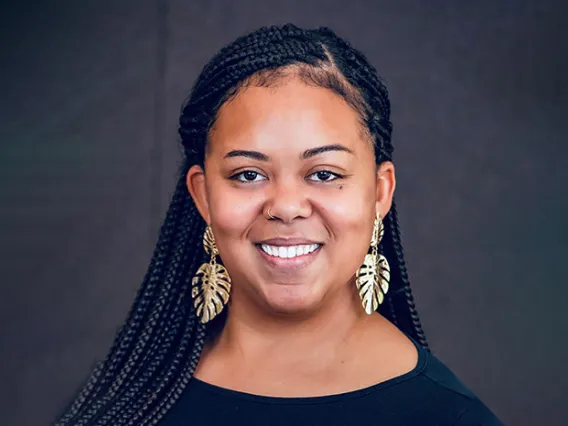
Alumni Profile
Kendra Hyson '15 Master of Landscape Architecture
With her MLA, Kendra Hyson has followed a path to leadership not just in landscape architecture but also in the movement for social equity in built environment design—as both a founder of The Urban Studio and in her current role as a landscape architect and planner in Washington, D.C.
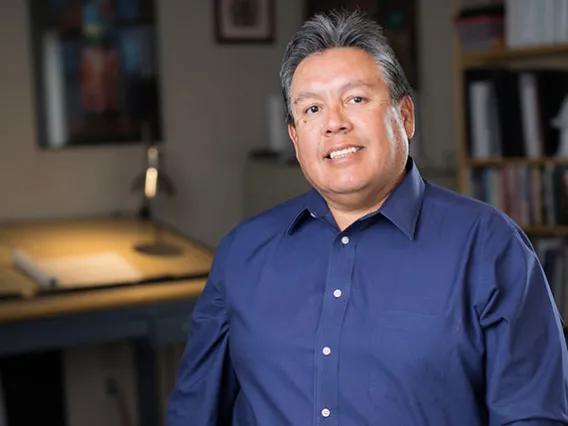
Alumni Profile
Dyron Murphy '88 Bachelor of Architecture
Dyron Murphy, who is from Window Rock on the Navajo Nation, learned many things as a B.Arch student—time management, design skills, flexibility—but what he didn’t anticipate was how close his cohort would become and has since remained.
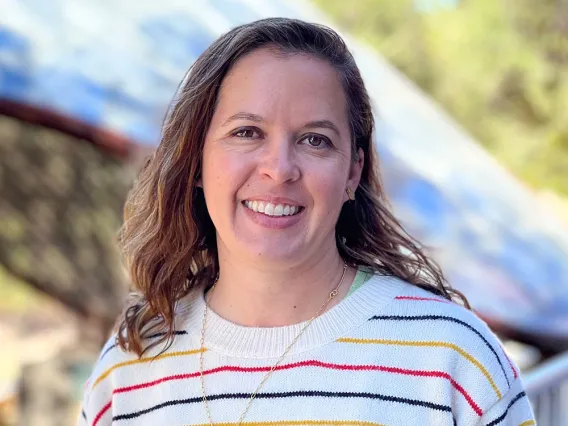
Faculty Profile
Mackenzie Waller, Assistant Professor of Landscape Architecture
Mackenzie Waller is interested in interdisciplinary collaboration toward justice, an overarching investigation to understand how practitioners, educators and advocates for spacial justice create sustainable resistance through the tools of joy, play and celebration.
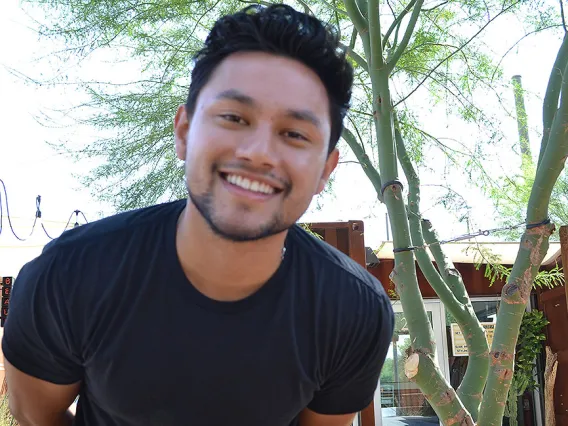
Student Profile
David Zúñiga ’23 B.Arch
David Zúñiga, who is from Nogales, Arizona, discusses his passion for cinema and architecture, how architecture school makes him a critical thinker, his experience in the CAPLA Hispanic student organization PUENTE, how he's learning to be patient and more.
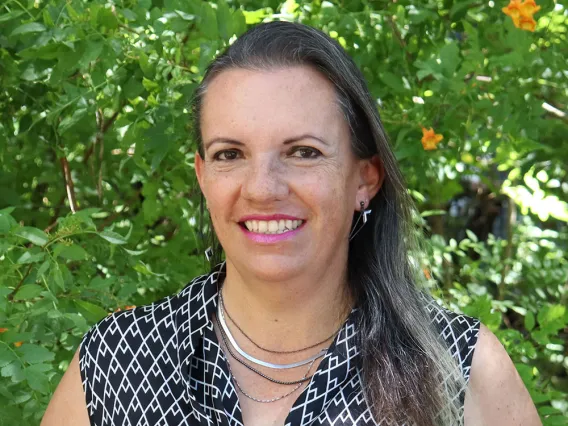
Faculty Profile
Sandra Bernal Cordova, Lecturer and UArizona Hispanic Serving Institution Fellow
Sandra Bernal Cordova, who joined CAPLA in 2018 as a lecturer, uses her built environment research, community service and cross-campus collaborations to inform the classes she teaches and co-teaches, which include Water Efficiency in Building and Equitable Cities.

Alumni Profile
Gabby Abou-Zeid '19 BS Sustainable Built Environments
For Gabby Abou-Zeid, who graduated with her Bachelor's in Sustainable Build Environments in 2019, her path exploring transportation and urban planning has been anything but linear.
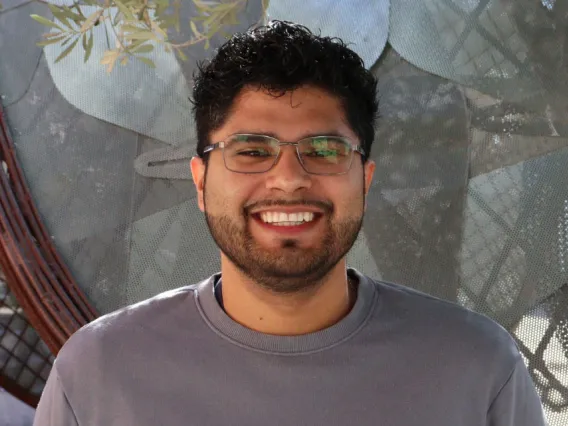
Student Profile
Jesus Nava '23 B.Arch
Jesus Nava was born in Sinaloa, Mexico, and grew up in San Diego, California. He was drawn to UArizona and the Bachelor of Architecture because of the beauty of the Sonoran Desert and its many outdoor recreation opportunities—as well as UArizona’s “great basketball program.”
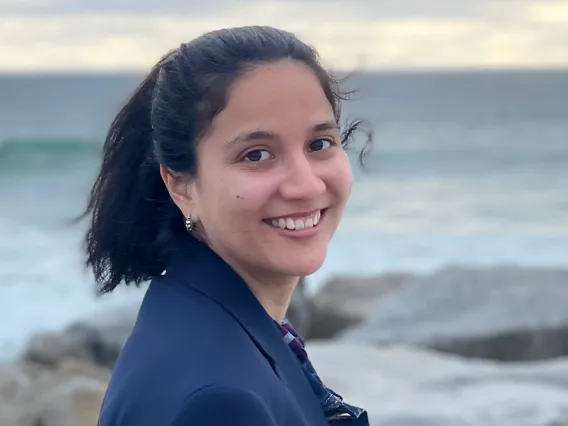
Student Profile
Ibeth Martinez '23 MS.Arch
Ibeth Martinez came to UArizona from Guayaquil, Ecuador, where she studied architecture as an undergraduate student. She came to CAPLA to pursue the Master of Science in Architecture because of its research focus flexibility and the fact that it offers both studio and research courses.
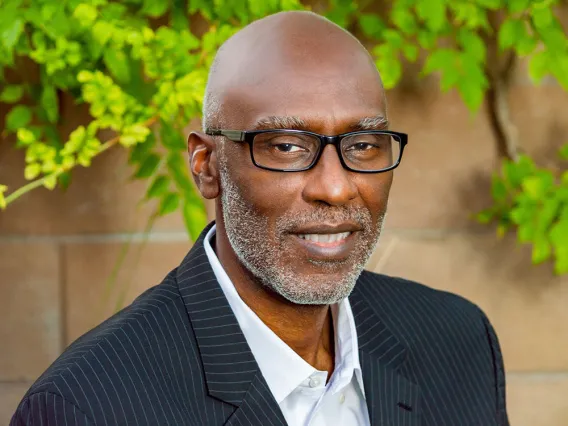
Faculty Profile
Damon Leverett, Senior Lecturer in Architecture
Senior Lecturer in Architecture Damon Leverett began at CAPLA in 2019. With a background in computer science and architecture, he brings a rich mix of architectural technology and systems design experience to the college, and currently serves as the AIA Arizona president.
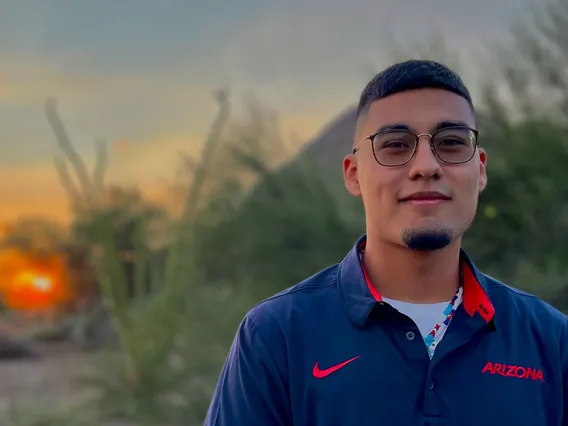
Student Profile
Daniel Vega '21 BS SBE, '24 M.Arch
Yaqui tribe member Daniel Vega, who is from Tucson, is continuing his passion for sustainable design by taking advantage of the CAPLA Master of Architecture accelerated master’s program following his BS in Sustainable Built Environments.
View All Student, Faculty and Alumni Profiles
Faculty, Staff & Student Demographics
The purpose of gathering and presenting demographic information is 1) to enable us to see the actual makeup of CAPLA at specific moments in time, 2) to undertake comparative analysis of the composition of the college over time and with other relevant entities and institutions, and 3) to make data-informed decisions about goals and means for change in the future.
CAPLA faculty, staff and student demographic data is presented here in comparison to the University of Arizona and State of Arizona. Though the data presents a snapshot of the racial/ethnic and gender makeup of the college, it tells only a part of the story of who CAPLA is—and who we can become. Be sure to view our stories, profiles and projects and other work to gain a broader picture of the wide range of people who make up the college.
View race/ethnicity and gender for CAPLA faculty, staff and students:
College Community Committee
The CAPLA College Community Committee is comprised of faculty, staff and students whose goal is to help the college meet its core value of being a leader in inclusive excellence.
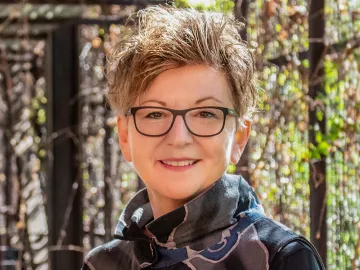
CAPLA Dean's Statement on
Community Inclusion
Dean Nancy Pollock-Ellwand's statement to students, alumni and colleagues, which reiterates our core values and objectives related to inclusive excellence and commits us to further action.
Student Organizations
CAPLA's student organizations strive to promote equity, diversity and inclusion among membership and in their activities. Student organizations with a particular focus on diversity and inclusion include:
CAPLA International Students Club (ISC)
ISC is dedicated to facilitating communication between students and faculty and promoting a friendly environment for all CAPLA students while providing them with the opportunity of finding a home away from home.
NOMA: National Organization of Minority Architects Arizona Student Chapter
NOMA is a student organization with a mission to create a unified community within CAPLA, to serve as an increasingly influential voice in minimizing the effects of discrimination and to promote the voice and work of minority design and built environment students for the betterment of our community.
Puente
Puente is the Hispanic student organization of CAPLA. Hispanic and other students are always welcome.
Women in Architecture Society (WIAS)
WIAS focuses on the support and positive representation of women in architecture and other, related design fields. Their goal is to empower women and provide advice and guidance as they go through school and the profession.
View All CAPLA EDI News & Headlines
Provide Feedback
We welcome your feedback on our equity, diversity and inclusion initiatives and resources, and you may leave a response—which will be shared with the associate dean for academic affairs and other CAPLA faculty or staff as appropriate—with your contact information or anonymously. Thank you.


